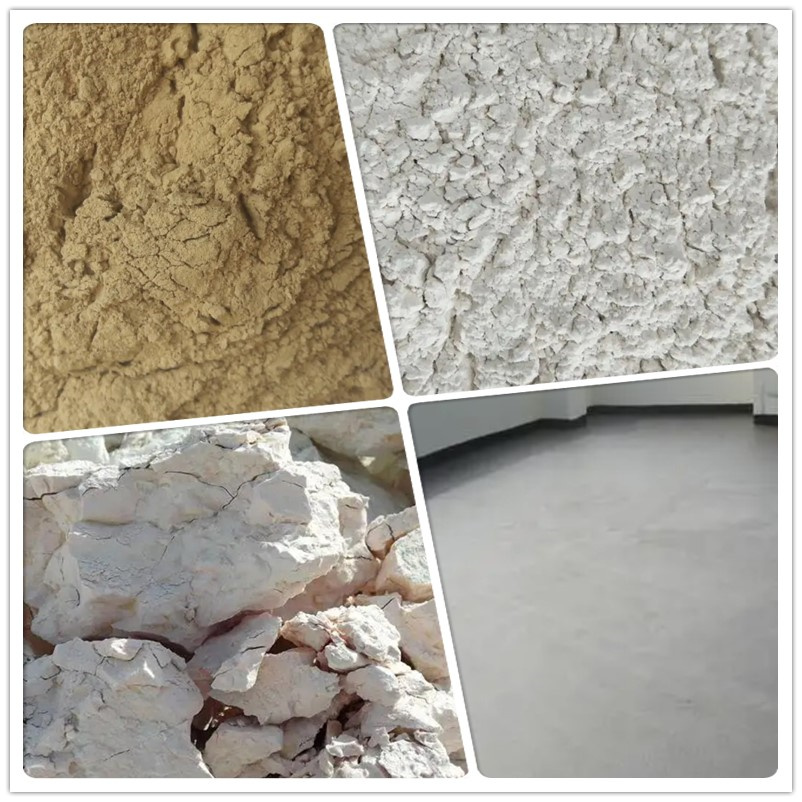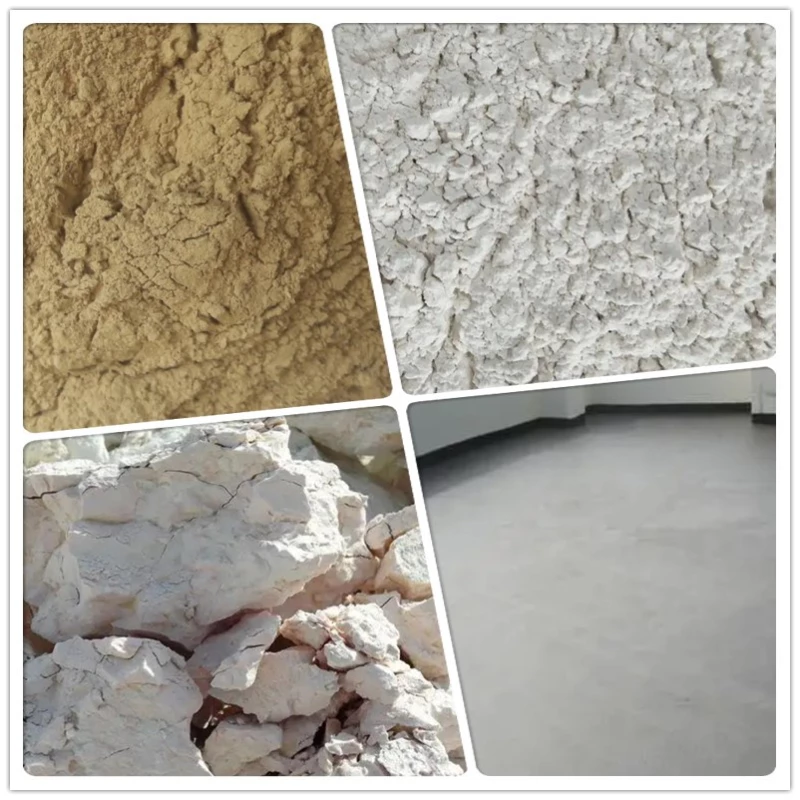Sodium Bentonite

keywords
sodium bentonite, concrete, waterproof material, impermeable concrete
Bentonite is an aqueous clay ore based on montmorillonite, with special properties: bentonability, bonding, adsorption, catalytic, touch, suspension and cation exchange, the layer spacing d (of sodium bentonite) is about 1.2nm.
Appearance and features
White, yellow, and brown. Wax luster. Shell-shaped or niobium dentate breaks.
Weathering is as loose as soil, such as "burst corn flower" shape. Hardness of 1 - 2. Density was between 2 - 3 g / cm.
It is hygroscopic and long duration, and the maximum water absorption is 8 - 15 times its volume. The maximum volume expansion multiple can be up to 20 times after water absorption.
A permanent emulsion can be formed in water, with viscosity and lubrication.
Strong plasticity, good bonding, easy to shape.
With good thermal stability, heating to 100 C cation exchange amount increases; 390 - 4900C.
Waterproof performance and compaction performance
Bentonite has a high degree of water tightness and its repair recovery function, its waterproof tightness (sodium bentonite in water pressure form diaphragm, thickness about 5mm, at 100 times of 30cm thickness clay compaction), good self-preservation water performance (sodium bentonite and water reaction, has about 15 times the expansion force, so can repair the concrete surface within 2mm crack) and waterproof performance (sodium bentonite does not occur aging or corrosion phenomenon) characteristics. Bentonite is harmless to the human body and has excellent environmental protection performance.
Anti-seepage performance
With sodium-based bentonite, fly ash and polycarboxylic acid highly efficient water-reducing agent as the main material compound, the concrete with excellent seepage resistance can be realized.
Impermeability mechanism
Cement in the process of hydration will produce a lot of small cracks inside, the existence of these cracks will not be through each other. Weathering of concrete parts in actual use and for a long time will lead to cracks inside the concrete gradually expand until through damage. Bentonite itself is a kind of fine particles that are easy to expand after absorbing water, and it can effectively fill the tiny cracks between concrete, thus enhancing the compactness of concrete. Bentonite will continue to expand after absorbing water, and this expansion can effectively fill the crack, thus effectively enhancing the impermeability of concrete.

keywords
sodium bentonite, concrete, waterproof material, impermeable concrete
Bentonite is an aqueous clay ore based on montmorillonite, with special properties: bentonability, bonding, adsorption, catalytic, touch, suspension and cation exchange, the layer spacing d (of sodium bentonite) is about 1.2nm.
Appearance and features
White, yellow, and brown. Wax luster. Shell-shaped or niobium dentate breaks.
Weathering is as loose as soil, such as "burst corn flower" shape. Hardness of 1 - 2. Density was between 2 - 3 g / cm.
It is hygroscopic and long duration, and the maximum water absorption is 8 - 15 times its volume. The maximum volume expansion multiple can be up to 20 times after water absorption.
A permanent emulsion can be formed in water, with viscosity and lubrication.
Strong plasticity, good bonding, easy to shape.
With good thermal stability, heating to 100 C cation exchange amount increases; 390 - 4900C.
Waterproof performance and compaction performance
Bentonite has a high degree of water tightness and its repair recovery function, its waterproof tightness (sodium bentonite in water pressure form diaphragm, thickness about 5mm, at 100 times of 30cm thickness clay compaction), good self-preservation water performance (sodium bentonite and water reaction, has about 15 times the expansion force, so can repair the concrete surface within 2mm crack) and waterproof performance (sodium bentonite does not occur aging or corrosion phenomenon) characteristics. Bentonite is harmless to the human body and has excellent environmental protection performance.
Anti-seepage performance
With sodium-based bentonite, fly ash and polycarboxylic acid highly efficient water-reducing agent as the main material compound, the concrete with excellent seepage resistance can be realized.
Impermeability mechanism
Cement in the process of hydration will produce a lot of small cracks inside, the existence of these cracks will not be through each other. Weathering of concrete parts in actual use and for a long time will lead to cracks inside the concrete gradually expand until through damage. Bentonite itself is a kind of fine particles that are easy to expand after absorbing water, and it can effectively fill the tiny cracks between concrete, thus enhancing the compactness of concrete. Bentonite will continue to expand after absorbing water, and this expansion can effectively fill the crack, thus effectively enhancing the impermeability of concrete.
Supplier's popular products
Contact Supplier
We have more categories for you. lf you can't find the products you want above,just fill in the form and tell us whatproducts you want to import from China.















